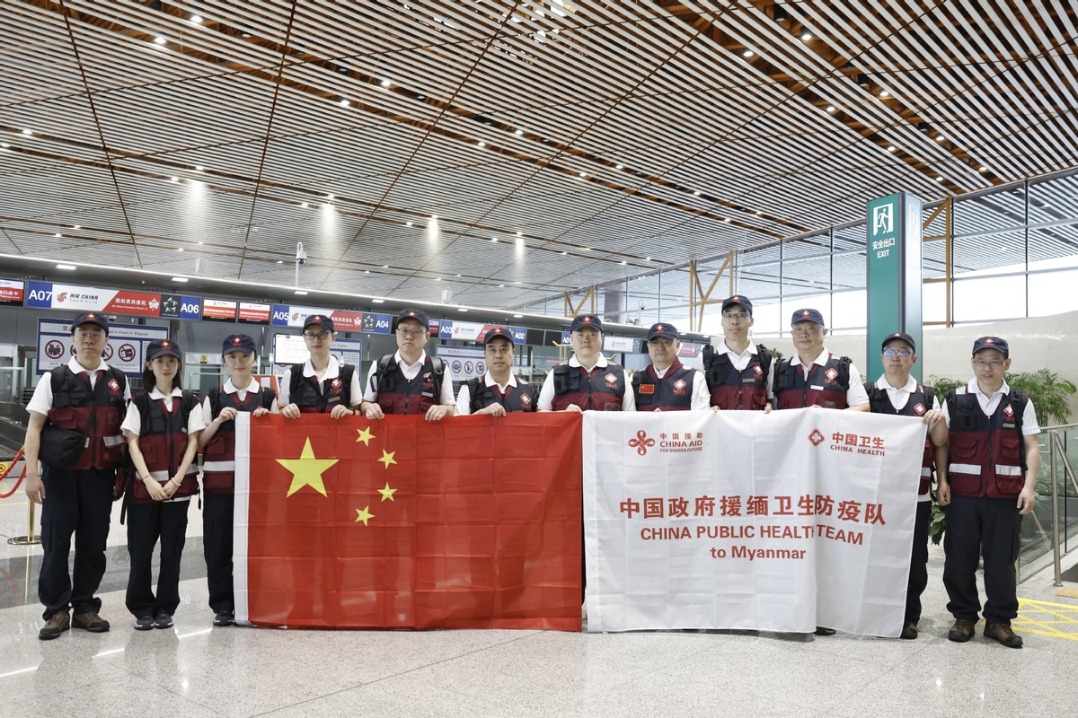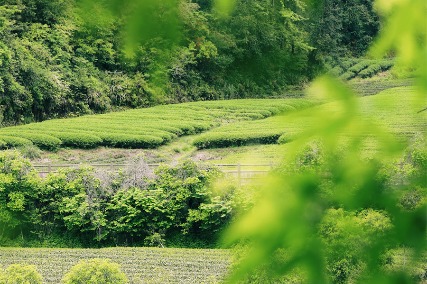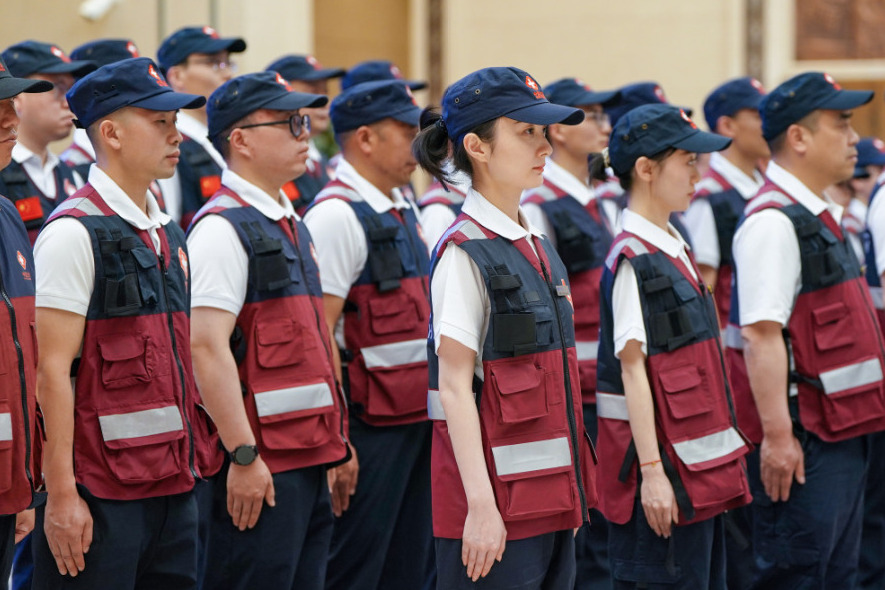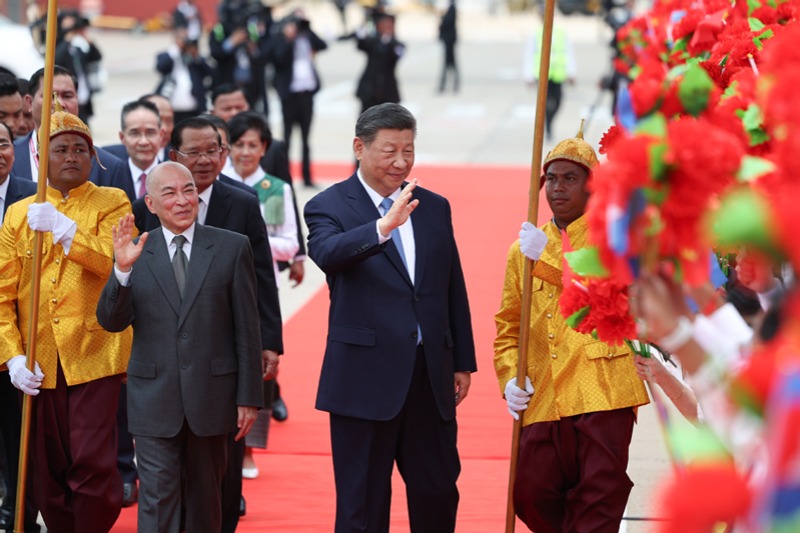Shanghai university project advances eco-friendly aquaculture in Cambodia

Amid the rice paddies of Cambodia's Takeo province, a "cross-border live broadcast" unfolded as researchers from Shanghai Ocean University taught local farmers how to use a drone to feed giant river prawns and cultivate shrimp seedlings.
The training, held on Friday, was part of a long-running collaboration between the university and Cambodian farmers. Over four years of technical demonstrations and joint research have expanded rice-fish farming in Takeo to 43.5 hectares involving 39 farmers. Last year, with help from the Chinese team, some farmers began using drones to feed prawns in rice fields and ponds.
"We hope through the demonstration, the project will attract more Cambodian farmers to join in, ensuring food security and improving local residents' nutritional well-being," said Wu Xugan, a professor at Shanghai Ocean University who leads the team.
Since 2021, the university — a global leader in rice-fish co-breeding research — has carried out the Asian Cooperation Fund project "Rice-Fish Technology Cooperation and Aquaculture Poverty Alleviation in Lancang-Mekong Countries", focusing on technology demonstration and talent training, primarily in Cambodia.
The project, which promotes freshwater prawn, silver barb and common carp farming in rice fields and ponds, was renewed for another three years in 2024.
Challenges persist due to seasonal limitations, infrastructure gaps and farmers' limited technical knowledge. To help, the team created technical manuals in Khmer on rice-fish symbiosis and prawn nursery pond cultivation, holding training sessions to build local capacity.
Wu said the team has adapted breeding methods to Cambodia's climate and farming conditions, increasing the survival rate of giant river prawn seedlings from 40 percent to more than 70 percent.
"After more than a year of training and trial operations, the technology for cultivating giant river prawn seedlings at a local nursery in Kampong Chhnang province has become stable," Wu said. "This enables Cambodia to have a reliable source of locally bred seedlings, instilling confidence in the rice-prawn farming industry."
The team has introduced intelligent devices, including oxygenation equipment, online water quality monitors and automated feeding machines. These innovations have improved seedling quality, increased survival rates and reduced labor and risks.
Under the guidance of associate professor Chen Leilei and colleague Li Jun from the university's College of Engineering Science and Technology, drones are now used to precisely distribute feed in shrimp ponds, improving efficiency.
"With the digital fishing equipment and seedling rearing techniques brought by Chinese experts, the survival rate of intermediate-sized giant river prawns reached 78 percent last year," said farmer Chhea Chorn.
Chorn, whose farm has been designated as a demonstration base, is training five apprentices to join him in shrimp farming.
"We are all on the path to prosperity," he said with a grin.
As the livestream training ended, translator He Zizhen relayed the farmers' thanks, along with promises of durian and mango feasts for Wu, when he visits in May.
Wu said he was proud that his team is helping build a "fish and rice corridor" between China and Cambodia, a cornerstone of agricultural cooperation aimed at accelerating Cambodia's agricultural modernization and raising rural incomes.
"With Cambodia boasting vast rice cultivation areas but limited freshwater pond space, there is immense potential for collaboration," he said.
Looking ahead, Wu said the team aims to cultivate more new farmers abroad and expand joint projects to promote sustainable farming, talent development and technical demonstration.
Plans include setting up 10 new technical demonstration farms this year, developing local expertise and helping Cambodia shift from traditional fishing to eco-friendly aquaculture infused with Chinese know-how.
- Shanghai university project advances eco-friendly aquaculture in Cambodia
- Grain yields to grow over next decade
- China boosts public health with vaccine and immunization progress
- First pet terminal set for May opening in Guangzhou
- China's second epidemic prevention team sent to quake-hit Myanmar
- Disabled woman finds joy through art





































